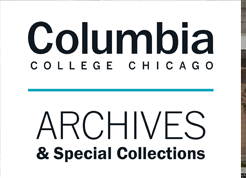
Document Type
Article
Publication Date
Spring 4-27-2015
Keywords
Civic rights, anti-war movement, Alternative Schools Network, Juvenile Protective Association, education, Chicago, Illinois, Catholic, Bowman Center, Xavier College, Vietnam, social movements, Democratic National Convention, Chicago, Illinois, Segregation, Civil rights demonstrations, Civil rights movements
Disciplines
Cultural History | History | Political History | Political Science | Religion | Religious Thought, Theology and Philosophy of Religion | Social History | United States History
Abstract
Length: 63 minutes
Interview with Jack Wuest by Grace Fanning
Mr. Wuest begins by outlining the details of his childhood, family, and early education. He describes his role in the draft resistance during the Vietnam War, and describes the process the young men were subjected to as part of the draft. He recalls his time working with the Juvenile Protective Association which is what first brought him into contact with the Democratic National Convention protests. He recalls witnessing the police violence perpetrated against protesters. He remembers his reactions to the assassinations of Martin Luther King, Jr. and Robert Kennedy. He explains his understanding of the world events surrounding Vietnam and the U.S. that led to the war, of the U.S. as the colonial power of the 20th century. He reflects on the aftermath and consequences of the DNC protests, both personally and on a larger scale. He describes his work with DCSF and Alternative Schools Network beginning in the 1970’s. He concludes up by describing the parallels he sees between the events of 1968 and today: “The tolerance for listening to dissent is really crucial because sometimes the people who dissent have something to tell you that other people who have been busy […] telling you what you want to hear — you’re not seeing what you need to see.”
Recommended Citation
Fanning, Grace. "Interview with Jack Wuest" (Spring 2015). Oral Histories, Department of Humanities, History & Social Sciences, College Archives & Special Collections, Columbia College Chicago. http://digitalcommons.colum.edu/chicago1968/10
Streaming Media
Creative Commons License

This work is licensed under a Creative Commons Attribution-NonCommercial-No Derivative Works 4.0 International License.
Included in
Cultural History Commons, Political History Commons, Political Science Commons, Religious Thought, Theology and Philosophy of Religion Commons, Social History Commons, United States History Commons


Biography and Comments
In 1968, Jack Wuest was employed by the Juvenile Protective Association working to keep children together with their families instead of removing them into foster care. He became active in anti-war movement protests of the time. In 1973, he and Mark Tenas established the Alternative Schools Network, Chicago, a not-for-profit organization in Chicago working to provide quality education with a specific emphasis on inner-city children, youth, and adults, and helps shape policies and programs in education.
The interviewer conducted this oral history as part of his/her coursework for the Spring 2015 class, Oral History: The Art of the Interview. This project was completed in collaboration with the Council of Religious Leaders of Metropolitan Chicago and the College Archives & Special Collections department at Columbia College Chicago. Contact archives@colum.edu for more information.